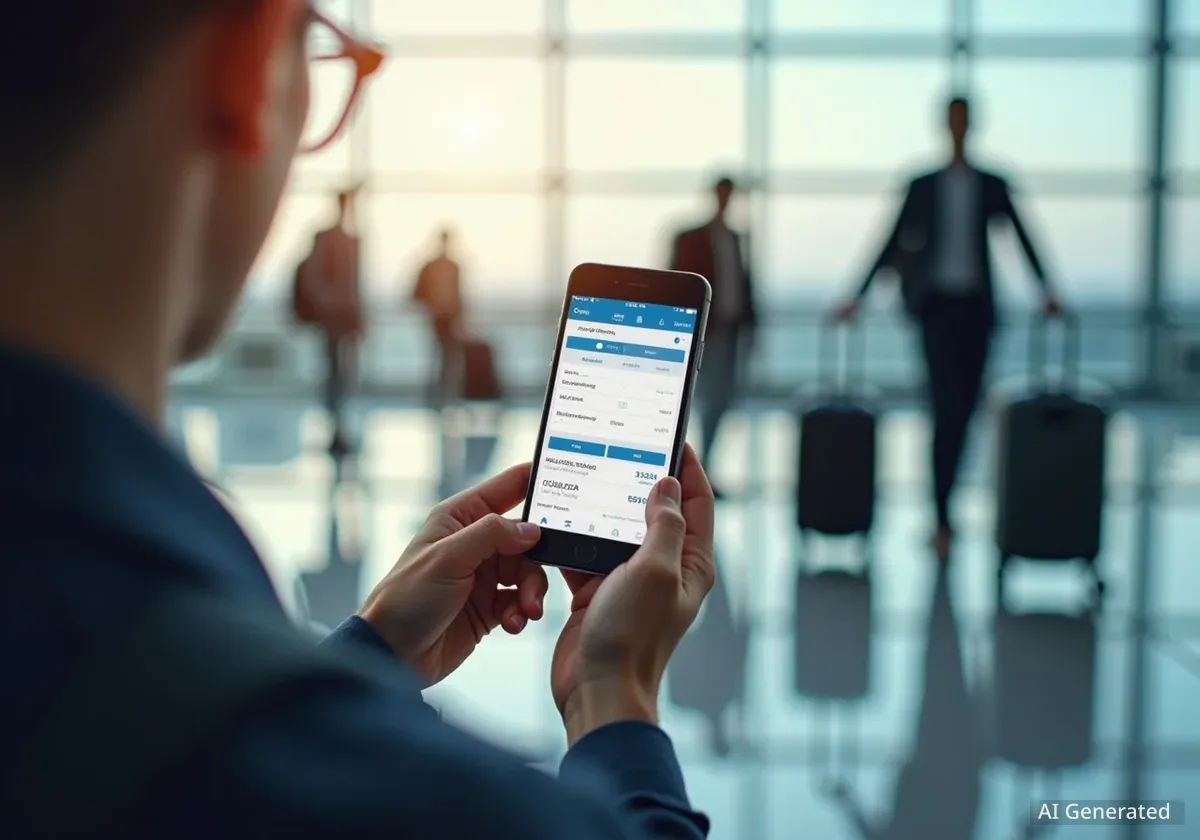Travelers face a growing risk of airline impostor scams, especially when dealing with urgent flight changes or cancellations. These fraudulent schemes can lead to significant financial losses and the theft of personal information. A senior investigator from the Wisconsin Better Business Bureau (BBB) recently experienced such a scam firsthand, highlighting the deceptive nature of these operations.
Key Takeaways
- Airline impostor scams are increasing, often targeting travelers at airports.
- Scammers create fake websites and phone numbers that appear legitimate.
- Victims risk losing money and sensitive personal data.
- Always verify contact information directly from the official airline website.
- Report suspicious activity to the Better Business Bureau.
Understanding the Airline Impostor Scam
Airline impostor scams typically begin when a traveler needs to contact an airline quickly. This often happens in stressful situations, such as a canceled flight or a reservation change. The traveler searches online for the airline's customer service number. Scammers exploit this urgency by creating fake websites or paid search results that appear as official airline contacts.
Lisa Schiller, a senior investigator with the Wisconsin BBB, described her own experience. Her flight was canceled, and she immediately used her iPhone to search for the airline's number. She clicked on one of the first links that appeared, believing it was the airline's official contact. "You’re in an airport. You’re in a hurry. There’s so much going on, and so you click on one of the first links that pops up, it appears to be the airline," Schiller stated.
Fact: The Urgency Factor
Scammers rely on the urgent need for information or assistance. Travelers under pressure are less likely to double-check details, making them vulnerable to deceptive links and phone numbers.
How the Scam Unfolds
Schiller spent an hour on the phone with the impostor. During this time, she provided her flight information. After ending the call, she felt that something was wrong. Her intuition prompted her to research the number she had called on the Better Business Bureau website.
Her search revealed numerous complaints against the number. This confirmed her suspicion that she had fallen victim to a scam. She then had to spend considerable time reporting the incident and contacting the actual airline to resolve her flight issue and secure her personal data.
"I took my iPhone, immediately Googled the name of the airline, clicked on the first link that popped up because it appeared to be the airline. I called it. It was really a fiasco," Schiller explained.
The BBB regularly receives reports of individuals losing both money and personal information to these fraudulent operations. These incidents highlight a significant consumer risk in the travel sector.
The Role of Fake Websites and Search Results
Scammers often use sophisticated tactics to make their fake contact information appear legitimate. They may pay for sponsored search results to ensure their fake numbers appear at the top of search engine pages. These fake websites often mimic official airline branding, including logos and design elements, to deceive users.
Travelers should be aware that even the top search results may not always be official. Always exercise caution and verify information independently.
Protecting Yourself from Airline Impostors
The Better Business Bureau offers several key recommendations to help travelers avoid becoming victims of these scams. These steps are crucial for safeguarding both financial resources and personal data.
Background: The Better Business Bureau
The Better Business Bureau (BBB) is a non-profit organization focused on advancing marketplace trust. It collects and provides free business reviews on more than 5.3 million businesses and charities to consumers. The BBB also warns the public about scams and provides advice on how to avoid them.
Essential Prevention Tips:
- Save Official Contact Information: Before any travel, locate and save the official customer service number for your airline directly into your phone. Do this immediately after booking your flight. This ensures you have the correct number readily available if an issue arises.
- Verify Websites Carefully: When booking airfare or vacation packages, especially with unfamiliar companies or third-party booking sites, conduct thorough research. Check reviews and complaints on independent platforms like the BBB website.
- Check Website Security: Always look for "https:" at the beginning of the website address (URL). The "s" indicates a secure connection, though it does not guarantee the site's legitimacy entirely. It is a basic security measure that legitimate sites use.
- Keep Detailed Records: Maintain all documentation related to your transaction. This includes text messages, emails, and any other communication. These records can be vital if you need to dispute a charge or report a scam.
- Consult the BBB: Utilize the Better Business Bureau's website to research companies. You can check for existing complaints or reviews before engaging with a new travel provider.
- Report Scams: If you encounter a scam, report it to the BBB. This action helps others avoid falling victim, regardless of whether you lost money. Reporting contributes to a broader understanding of current scam tactics.
Schiller emphasized the importance of proactive measures. "My advice would be, whatever airline you are booking with, make sure that once you book officially with them, put that number in your phone should you need it later," she advised.
These scams are a regular concern for the BBB, underscoring the need for public awareness and vigilance. Travelers should always prioritize official sources for airline contact information and booking services.
The Broader Impact of Travel Scams
Travel scams extend beyond airline impostors. The BBB also receives numerous complaints about third-party booking sites. These sites sometimes offer deals that appear too good to be true, or they may have hidden fees and restrictive cancellation policies. Consumers must be cautious and verify the credibility of any third-party service before making a purchase.
The digital age has made travel planning more convenient but has also opened new avenues for fraud. Scammers continuously adapt their methods, making it essential for consumers to stay informed about the latest threats. By following simple security practices and being skeptical of unexpected offers or urgent requests, travelers can significantly reduce their risk.
The experience of a consumer investigator serves as a critical reminder for all travelers. Even those with expertise in identifying scams can be targeted. The fast-paced environment of an airport, combined with the stress of travel disruptions, creates an ideal setting for these deceptive practices to succeed.
Staying informed and prepared is the best defense against these evolving threats. Always verify, always document, and always report suspicious activity to protect yourself and others in the travel community.





